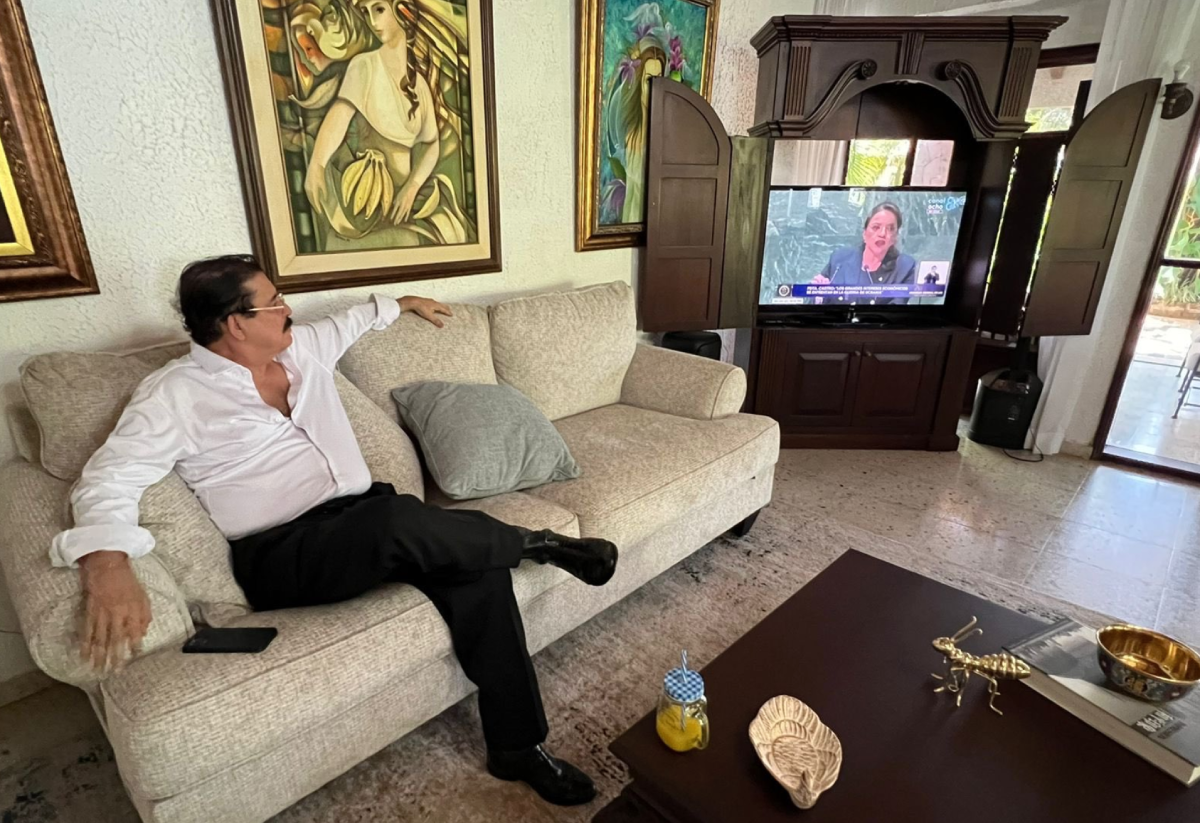For years, some opposition sectors to Zelayism in Honduras have accused Carlos Zelaya Rosales, brother of former president Manuel Zelaya, of being linked to drug trafficking. Many never believed it, with the argument being that if Washington hadn’t raised accusations or rumors, there was no reason to suspect it.
The beginning of Washington’s offensive
But the U.S. often holds its cards until it sees fit. After Xiomara Castro took office and Laura Dogu was appointed as the U.S. ambassador to Tegucigalpa—an expert in meddling in the internal affairs of countries she’s stationed in—Washington seemed to take the first step.
The ambassador’s remarks quickly soured relations with Honduras’ Foreign Ministry and parts of the Castro administration. Later, the president announced the cancellation of the extradition agreement, citing Dogu’s threats of intervention as the reason.
However, the scandal broke when the now-famous video, recorded during the 2013 elections, was presented by one of the participants in that meeting, former Los Cachiros cartel leader Devis Rivera Maradiaga, to the court prosecuting him in Manhattan for drug-related crimes. It was a “card” the ex-Cachiro had kept to improve his situation.
The fallout
Footage of meetings—anything but innocent—between the now-former congressman Carlos Zelaya Rosales and other leaders of the Libre Party, with notorious Honduran drug traffickers, has sparked a political scandal in Honduras.
A human rights leader, requesting anonymity, claims the case had been “simmering quietly” at the U.S. embassy in Tegucigalpa. The role of Laura Dogu has always been to complicate governments not aligned with the U.S. State Department. “Things didn’t come to light solely due to confessions and the video handed over to U.S. justice by ‘Cachiro’ Rivera Maradiaga,” the source says. “Within the government, no one with real power… was unaware that this meeting had taken place.”
Talks of denouncing and repealing the extradition agreement had been circulating for a while. Several high-ranking Libre officials could be implicated, including Carlos and José Manuel Zelaya, Carlos Muñoz (former deputy and current consul in Miami), Adán Funez (mayor of Tocoa) and Rafael Sarmiento (head of Libre’s congressional bloc), among others.
The role of Ramón Sabillón
At the start of Castro’s administration, Ramón Sabillón, a former national police chief under Juan Orlando Hernández’s (JOH) term, was appointed as Xiomara’s security minister. Sabillón had been fired as police director after acting against the Valle-Valle cartel without notifying the president, who was a “partner” of the Valle brothers. It’s speculated that Sabillón was acting under orders from the DEA.
Under JOH’s government, Sabillón went into self-imposed exile, leaving the country clandestinely. Since then, it’s assumed that he has been working closely with the U.S. government. He reportedly opposed the idea of canceling the extradition treaty. In 2023, Castro dismissed him following a massacre of over 40 female inmates in the Támara women’s prison.
The announcement of the agreement’s cancellation
The announcement to cancel the extradition agreement, made just weeks ago, was likely spurred by knowledge that ambassador Laura Dogu was working to have the U.S. justice system open new cases against current and former Libre Party officials.
Facing the threat of public accusations, the government preemptively announced the cancellation of the extradition agreement just days before the infamous video surfaced. To minimize damage, Carlos Zelaya and his son resigned immediately, stating it was to facilitate investigations. Rafael Sarmiento did the same and it’s expected that Carlos Muñoz may follow, with more resignations likely.
The public prosecutor’s role
The public prosecutor’s office quickly acted on orders from Attorney General Johel Antonio Zelaya Álvarez, directing the Criminal Investigation Agency (ATIC) to investigate the case. However, it’s unlikely that the general prosecutor’s office will conduct an independent and honest investigation. It remains to be seen how far the U.S. State Department and ambassador Dogu are willing to go.
Despite the many problems the Castro administration faces and the numerous unfulfilled promises, for now, her successor candidate, Rixi Moncada, seems poised to win the next elections.
Is it convenient for Washington to sideline the Libre Party?
Neither the leaders nor the policies of this party are to the U.S. government’s liking, but there are no credible alternatives. Thus, Washington may prefer a less friendly government that can be conditioned over a more aligned administration unable to handle the country’s crises. The opposition lacks a candidate with a solid, positive image to challenge the official candidate. Meanwhile, Xiomara Castro tries to downplay the scandal by requiring government officials who aspire to elected office to resign.
National broadcast to regain control
On the night of September 3, President Castro, alongside several top officials, including the new defense minister, Rixi Moncada, defended her government in a national broadcast, fiercely criticizing the U.S. and ambassador Laura Dogu. “After the U.S. ambassador’s threats, accusing the joint chiefs of staff and the defense minister of being drug traffickers, I confirm that the peace and internal security of the Republic are at risk,” said the president.
Regarding the video published by InSight Crime, Castro condemned all negotiations between drug traffickers and politicians but vowed not to allow the selective use of the extradition treaty with the U.S. to overthrow her government.
It remains to be seen how Libre’s base will respond. So far, there are no signs of internal rebellions or defections. If Libre’s leadership can weather the storm, even if it means sacrificing some figures, Rixi Moncada will still have a chance to be elected as Xiomara Castro’s successor.













